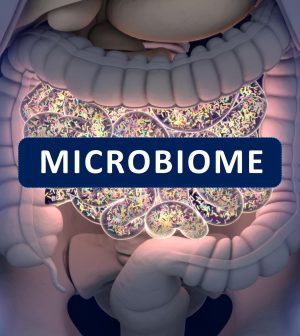- Could Your Grocery Store Meat Be Causing Recurring UTIs?
- Are You Making This Expensive Thermostat Error This Winter?
- Recognizing the Signs of Hypothyroidism
- 10 Strategies to Overcome Insomnia
- Could Artificial Sweeteners Be Aging the Brain Faster?
- Techniques for Soothing Your Nervous System
- Does the Water in Your House Smell Funny? Here’s Why
- Can a Daily Dose of Apple Cider Vinegar Actually Aid Weight Loss?
- 6 Health Beverages That Can Actually Spike Your Blood Sugar
- Treatment Options for Social Anxiety Disorder
Some Gut Bugs May Help Lower Your Cholesterol

Changes in gut bacteria have been linked to a variety of different diseases, including type 2 diabetes, obesity and inflammatory bowel disease.
Now, a new study indicates that gut bacteria also might play a role in a person’s risk of developing heart disease.
Certain species of bacteria actively consume cholesterol in the gut, which might help lower cholesterol levels and heart disease risk in people, researchers reported recently in the journal Cell.
In particular, people with higher levels of Oscillibacter bacteria in their gut have lower levels of cholesterol, because those bacteria drink in and process cholesterol from their surroundings, results show.
These findings could serve as “starting points to improve cardiovascular health” by tweaking a person’s gut bacteria, also known as the microbiome, said senior researcher Ramnik Xavier, co-director of the Broad Institute Infectious Disease and Microbiome Program in Boston.
Prior studies have linked the gut microbiome to heart disease risk factors like triglyceride or blood sugar levels, but they have failed to completely explain the means by which these bacteria affect heart health.
For the study, researchers analyzed the gut bacteria of more than 1,400 participants in the Framingham Heart Study, a decades-long effort to investigate risk factors for heart disease.
They found that people with several Oscillibacter species tended to have lower cholesterol than those who didn’t.
They also found that Oscillibacter is surprisingly abundant in the gut, representing, on average, one in every 100 bacteria.
To see how Oscillibacter affects cholesterol, researchers grew the bacteria in a laboratory from stool samples.
Analysis showed that the bacteria breaks down cholesterol into byproducts that are then further processed by other bacteria and excreted from the body.
They also found that another gut bacterial species, Eubacterium coprostanoligenes, also contributes to decreased cholesterol levels. That species carries a gene that is involved in cholesterol metabolism, the researchers explained.
In fact, Oscillibacter and Eubacterium might even boost each other’s impact on cholesterol levels, results show.
This research could lead to more studies that figure out why gut microbes have other effects on human health, the researchers said.
“There are many clinical studies trying to do fecal microbiome transfer studies without much understanding of how the microbes interact with each other and the gut,” said lead researcher Chenhao Li, a postdoctoral researcher in Xavier’s lab.
“Hopefully stepping back by focusing on one particular bug or gene first, we’ll get a systematic understanding of gut ecology and come up with better therapeutic strategies like targeting one or a few bugs,” Li added in a Broad Institute news release.
More information
Harvard Medical School has more on the microbiome.
SOURCE: Broad Institute, news release, April 11, 2024
Source: HealthDay
Copyright © 2026 HealthDay. All rights reserved.










